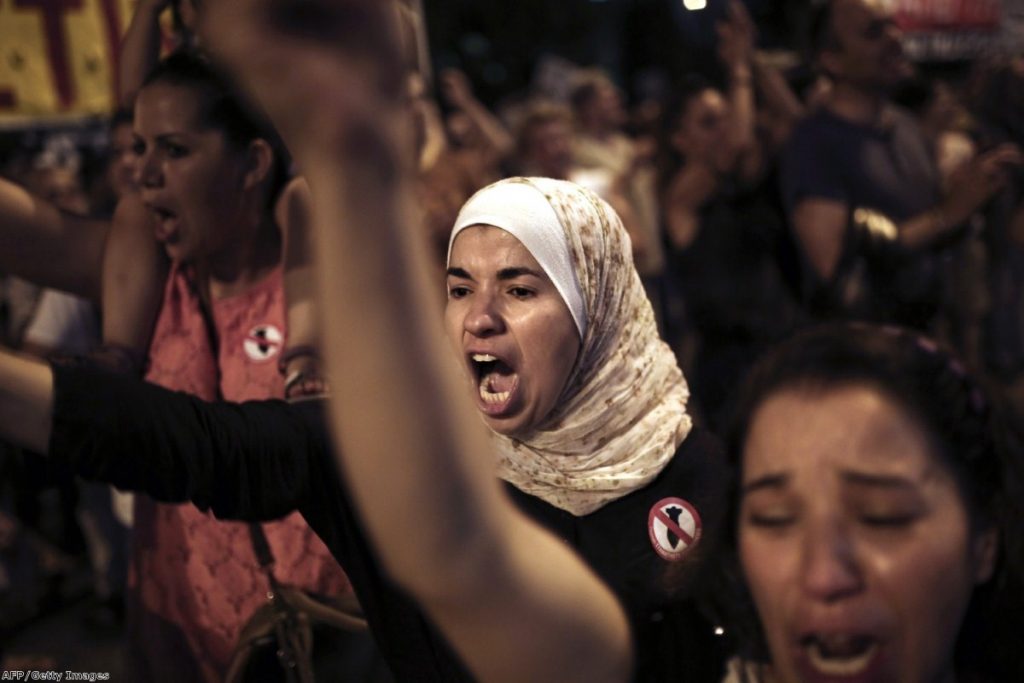Week in Review: The war which separated Israel from the world
The silly season has not been very silly. Instead of stories about diets and celebrity tittle-tattle, the summer news is full of images of maimed children and homes reduced to rubble.
This summer's action by Israel feels very different to the operations it has conducted since the second intifada in 2000. The reaction among Israeli defenders in the UK has been muted and even the most hawkish of its advocates have struggled to articulate a justification for the images we have seen on our screens. Things have become so bad even Washington is alarmed.
In reality, the Israeli operation has not been much more brutal than Operation Days of Penitence in 2004, Operation Cast Lead in 2008, Operation Pillar of Defense in 2012, or the disastrous 2006 Lebanon war, in which Israel discovered that Hezbollah was a more formidable and organised foe than Hamas.
One factor influencing the world reaction to Israel's war is the sudden prevalence of graphic imagery from Gaza. Much of this stems from Twitter and, to a greater extent, Facebook. Internet users have side-stepped broadcasters' reticence about showing graphic images of violence and posted shocking photos, often of dead children, who have so far been killed at the rate of one an hour for the duration of the 24-day onslaught.


As with so many aspects of reporting, the standards which operate on social media have influenced the conduct of mainstream media. The Gaza coverage has been noticeably more robust in the pages of the press and on television than during previous Israeli offensives. The BBC, Sky and Channel 4 News are arguable being influenced too by the relatively new media presence of Al-Jazeera and Russia Today, who are more wiling to show graphic imagery.
Newspapers which previously were fiercely loyal to Israel, such as the Daily Mail, have cast a much more circumspect pose. Channel 4's Jon Snow even gave a 'good night and good luck' style piece to camera describing what he had seen and urging viewers to take action, although producers opted to put it on YouTube rather than risk Ofcom's ire with a TV broadcast.
David Cameron's reaction through the war has been surprisingly conservative. He has resolutely stuck to the script and refused to blame anyone but Hamas for the violence. Presumably he has been given a strict talking to from Benjamin Netanyahu, or Barack Obama, or both. His pronouncements on the Middle East are usually far more balanced. The coalition was more critical of Israel than New Labour, especially under William Hague. But this has not been evident in the response to the current crisis.
New foreign secretary Phillip Hammond was prepared to admit that Israel's actions were losing it friends in the West. But he was too nervous to admit that his call for a proportionate response suggested that the current action was disproportionate. Protest groups have been less reticent. They have protested each weekend in central London in massive numbers.
Away from the Middle East, the summer weather did nothing to warm the hearts of the Home Office, who this week succeeded in deporting the cleaner of Mark Harper.
Isabella Acevedo was arrested and detained at her daughter's wedding by 15 immigration officers. Her removal was scarcely any less aggressive. She was taken from her bed at one minute past minute, without her friends and family being informed.
The manner in which the operation against Acevedo has been handled raises serious questions about the behaviour of Theresa May's department. There are strong grounds for suspicion that it is conducting itself as a revenge unit for the embarrassment of Harper. For his part, the man behind the 'Go Home' vans is back in government over at the Department for Work and Pensions. His cleaner was not forgiven so easily.
Finally, officials at the Ministry of Justice may have hoped the summer break would distract news readers from the publication of figures on prison performance. If so, they were over-optimistic. The figures were damning. A 30% rise in serious assaults in jail, a 69% rise in suicides and sky-rocketing numbers of failing prisons.
Grayling spent the day making a speech about how trade unions were influencing Labour party policy. It was a depressing spectacle in inaction as the effects of his tenure as secretary of state tear apart the British prison system.
But no matter how disappointing the behaviour of the Home Office and Ministry of Justice, everything fades into significance next to those images from Gaza. They will not be easily forgotten.

